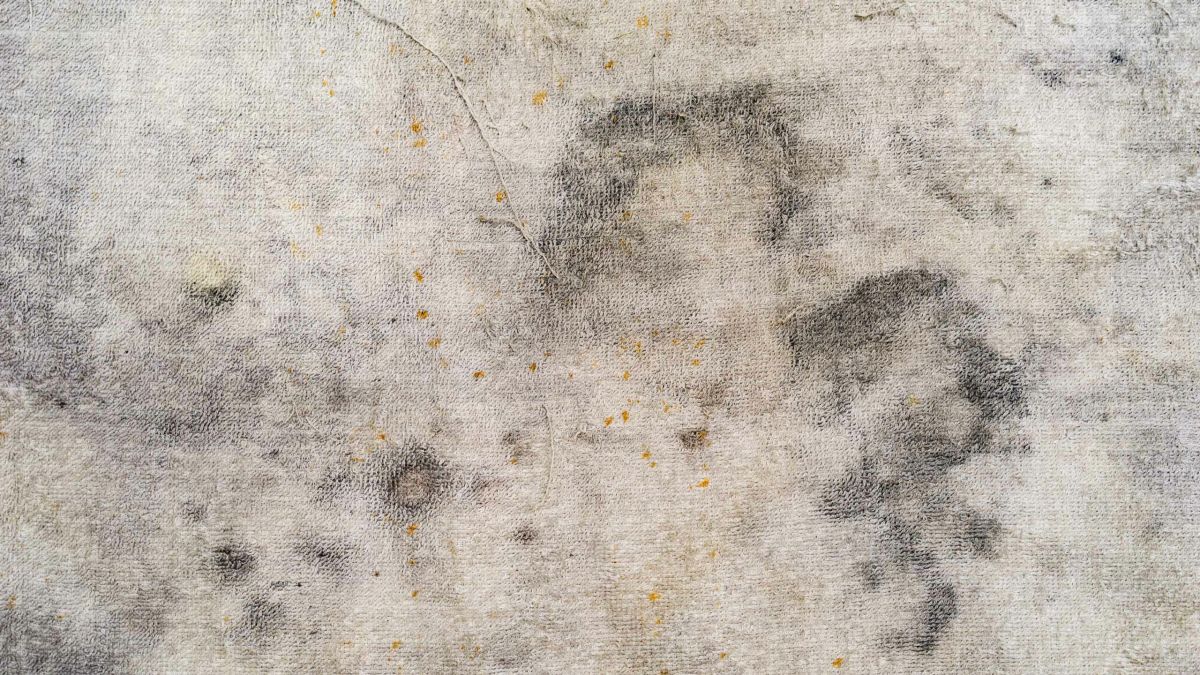Realising the Presence of Najāsah On One’s Self After the Conclusion of Prayer
Imām Muḥammad ibn Ṣāliḥ al-ʿUthaymīn


The Ḥanbalī Ruling on the One Who Is Unaware, Forgetful, or Ignorant of Najāsah
According to the Ḥanbalī madh`hab, the one who sees najāsah [on his clothing or body] after praying, but was unaware of it during the prayer does not have to repeat his ṣalāh. As for the one who knew it had marred his clothing, but forgot it or was ignorant of its place, he must repeat his ṣalāh.
The najāsah being referred to here is an amount that may not be overlooked. As the presence of an amount that may be overlooked will not harm one’s ṣalāh.
‘On him’ that is, either on his body or clothing. Two scenarios have been mentioned here:
- Addressed in the saying: “but was unaware of it”. That is, ignorant of whether the najāsah had marred him during his prayer, or after its conclusion. In this circumstance, he does not have to repeat his ṣalāh for two reasons:
- The ṣalāh has already concluded without the assuredness of a corruptor. The fundamental state of the prayer is that najāsah is non-existent. For this reason, if a person was to have doubts after praying regarding the number of rakʿahs, wondering whether he had prayed three or four, such doubts do not matter. The ṣalāh has already been concluded.
- This person does not know whether this najāsah marred him before his taslīm or after it. His original state is one (presumed) free of it and, thus, he does not have to pray his ṣalāh again.
Even if he is almost certain that the najāsah had marred him before the ṣalāh, he does not have to repeat it. This is because almost certainty here is the same as holding doubts. Being doubtful of the existence of a thing is the same as it being non-existent. For this reason, when the Messenger (صلى الله عليه وسلم) was asked concerning a man perturbed by the contents of his stomach while praying causing him to doubt whether flatulence had left his body or not, he (صلى الله عليه وسلم) said: “Let him not abandon the prayer until he either hears its sound or smells its stench.”1 Also, due to the rule in jurisprudence: “Assuredness may not be removed except with that which is similarly assured”. Therefore, that which is assured remains unaffected by that which is merely probable or doubtful.
- A person who knew that he was marred by najāsah while praying, but was unaware of it when performing the act itself such that he realises it after the conclusion of prayer. It is the opinion of the Ḥanbalī madh`hab that he must repeat his ṣālah.An example of this would be if a man prayed and upon performing the taslīm at the end, he sees dried najāsah on his clothing. He is certain that the najāsah in question marred his clothing before his commencement of the ṣalāh, although he did not realise it at the time.
There are three forms of ignorance:
- Knowing that najāsah had marred one’s clothing while praying but only realising it after the conclusion of the prayer itself.
- Knowing the presence of the najāsah while praying, but being ignorant of whether it is of sufficient proportions to invalidate the ṣalāh being performed. For example, while a man is praying he sees marks splattered on his clothing. He does not know whether the amount of najāsah present is scanty enough to be overlooked or not. It is then clarified to him that its amount may not be overlooked.
- A person knows its presence while praying although he is ignorant of the fact that removal of najāsah is a prerequisite of ṣalāh. The example of this is self-evident.
In all three of these scenarios the person must repeat his ṣalāh [according to the Ḥanbalī madh`hab] due to lack of fulfilment of one of the prerequisites of ṣalāh which is the complete avoidance of najāsah. It is as if he prayed without performing wuḍūʾ due to him forgetting he had invalidated it.
As for our saying “but forgot it”, that is he forgot that najāsah had marred him, only realising after saying the taslīm. He must repeat his ṣalāh according to the Ḥanbalī madh`hab for failing to fulfil one of the prerequisites of ṣalāh which is complete avoidance of najāsah. This is the same as him forgetfully praying after invalidating his wuḍūʾ. This also applies to him forgetting to clean it.
The Correct Stance Is That He Does Not Have to Repeat His Salāḥ
The correct opinion in all of these issues is that he does not have to repeat his ṣalāh regardless of whether he forgot that he was marred by najāsah, or forgot to clean it, or was ignorant of its presence, or ignorant that a particular substance was considered najāsah, or ignorant of the ruling, or ignorant of whether it had marred him before commencing the ṣalāh or after it. The evidence of this is the encompassing, overarching, major judicial principle instated by Allāh on behalf of His servants in His saying:
لا يُكَلِّفُ اللَّهُ نَفْسًا إِلَّا وُسْعَهَا ۚ لَهَا مَا كَسَبَتْ وَعَلَيْهَا مَا اكْتَسَبَتْ ۗ رَبَّنَا لَا تُؤَاخِذْنَا إِن نَّسِينَا أَوْ أَخْطَأْنَا
“Allāh burdens not a person beyond his scope. He gets reward for that (good) which he has earned, and he is punished for that (evil) which he has earned. “Our Lord! Punish us not if we forget or fall into error.”
(Al-Baqarah, 2:286)
This man who has engaged in that which is forbidden has only done so out of ignorance or forgetfulness. Allāh has absolved him of punishment such that nothing remains for which he may be held responsible.
There is also a specific piece of evidence that applies to this issue. When the Messenger of Allāh (صلى الله عليه وسلم) prayed in shoes marred by najāsah and was informed of its state by Jibrīl (عليه السلام), he did not restart his ṣalāh [but simply removed his shoes during prayer].2 This proves that this did not invalidate the beginning of his ṣalāh, just as it did not invalidate the rest of it.
[Q]: What has prevented you from analogising this issue with the issue of a person forgetfully or ignorantly praying without wuḍūʾ [who would be obligated to perform wuḍūʾ and pray again]?
[A]: Not performing wuḍūʾ is a form of abandoning a direct order. Performing wuḍūʾ is an action that has been commanded. People are, therefore, responsible for its performance. While najāsah refers to that which is forbidden. People are responsible for ridding themselves of it. As such, engaging in something forbidden and abandonment of an order cannot be analogised with one another. This is because the one who engages in that which is forbidden due to forgetfulness or ignorance is forgiven such that he and the one who manages to completely avoid it are the same in the sense that they are both devoid of transgression. As for abandoning a direct order out of forgetfulness or ignorance, this person is likewise forgiven upon his abandonment of it and is unlike the person who intentionally abandons a direct order who is sinful. This person may then compensate and attain uprightness by repeating the action in question in the manner that was commanded. So pay attention to the clear, plainly evident difference between the two.
In consideration of this, if a person was to consume camel meat but was ignorant that the meat was from a camel, or that the consumption of such meat invalidates the wuḍūʾ, or he knew that it is an invalidator but forgot to perform wuḍūʾ after consuming it, or forgot that he had eaten it, so he stands and begins praying, but then, he realises his state, he must repeat his ṣalāh. This is because the issue here pertains to abandonment of an order which is contrary to the issue of najāsah which pertains to engaging in that which is forbidden. This is the correct opinion on this issue. It is also the stance taken by Shaykh al-Islām Ibn Taymiyyah (رحمه الله), and was also narrated from Imām Aḥmad.
Endnotes:
[1] Authentic: narrated by al-Bukhārī: 175 and Muslim: 362.
[2] Authentic: narrated by Abū Dāwūd: 650 and graded authentic by Shaykh al-Albānī. See Sunan Abī Dāwūd edited Muḥī al-Dīn ʿAbd al-Ḥamīd.
Source: Al-Sharḥ al-Mumtiʿ 2: 230-234
Translated by: Riyāḍ al-Kanadī

















